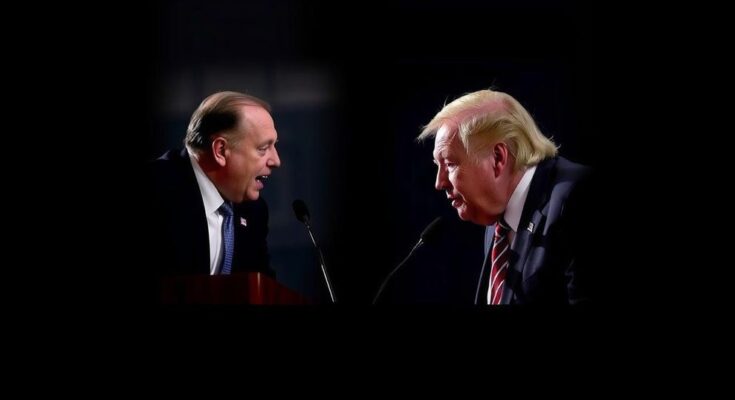This article critiques the current state of the 2024 presidential election, arguing that the choice between Kamala Harris and Tim Walz and their Republican counterparts is not as clear-cut as suggested. It reflects on past promises by liberal candidates and the challenges they now face, highlighting concerns regarding perceived radical shifts, competence, and international stability.
In the realm of contemporary politics, the upcoming 2024 election finds itself reflecting a deeply polarized electorate, with significant divisions still permeating the fabric of American society. The campaign slogan “Harris-Walz 2024: Obviously” encapsulates a prevailing mindset among some of the electorate, which suggests a straightforward choice against former President Donald Trump. Yet, this choice is anything but clear-cut, as evidenced by the narrow margins of current polling data, prompting a re-examination of the factors that contribute to the hesitancy some voters might feel toward the Democratic ticket led by Kamala Harris and Tim Walz. The political climate bears similarities to that of 2016, when the electorate was prompted to view the choice as a binary: liberalism versus the Trump administration. Hillary Clinton’s campaign presented a promise of stability, rationality, and competence as a bulwark against what was characterized as Trump’s erratic behavior and governance style. However, her campaign’s assumption that voters could blindly trust elite liberalism proved flawed, as individuals increasingly became disillusioned by what they perceived to be radical shifts within liberalism itself as it responded to events such as the COVID-19 pandemic and civil unrest following George Floyd’s death. As liberalism adopted what some considered radical stances, including a temporary rejection of standard policing and the endorsement of experimental treatments for gender dysphoria, the fallout contributed to rising crime rates and public safety concerns fueled by urban violence. Furthermore, the Biden administration’s foreign policy has faced criticism for perceived weaknesses and failures on the international stage. These circumstances have left many questioning whether the fundamental promises of the liberal agenda—sanity at home, stability abroad, and a superiority of competence—have truly manifested. The selection of Kamala Harris as the Democratic candidate raises further doubts about the inclination to trust the Democrats with governance. Harris, while politically active, has faced scrutiny for seemingly lacking the gravitas and policy detail demonstrated by previous candidates like Hillary Clinton and Joe Biden, which adds to an air of uncertainty surrounding her leadership capabilities. In contrast, the Republican ticket, bolstered by a capable running mate and the endorsement of political heavyweights with experience and success in various sectors, presents a challenge to the Democratic narrative, prompting voters to contemplate the potential effectiveness of the GOP in governance, even amidst their clear flaws. As Americans approach the 2024 elections, the reality is that the choice will encompass more than just a refusal to support an authoritarian movement; it requires grappling with significant uncertainties and acknowledging the complexities that have arisen beyond the Trump era. The decision to vote will necessitate careful reflection on these dynamics and a consideration of both past experiences and future implications for the nation.
The article discusses the current political landscape leading up to the 2024 presidential elections, focusing on the dynamics surrounding the Democratic ticket of Kamala Harris and Tim Walz, as well as the Republican response. It highlights the deep-seated divisions within American society and reflects on the political climate that has evolved since the 2016 election, differentiating the electoral promise made by Democrats against the backdrop of Trump’s presidency. The commentary attempts to deconstruct the perceived clarity of choice in the upcoming election by revisiting previous promises of liberalism and examining the emerging alternatives presented by the Republican party, which are seen as capable of appealing to voters’ desire for effective governance despite ethical concerns.
In conclusion, as the 2024 election approaches, it becomes increasingly evident that the choice between candidates is clouded by uncertainty and varying interpretations of political efficacy. While the Democratic ticket embodies a promise of continuity and stability, past developments reflect serious concerns that challenge those ideals. Conversely, the Republican ticket offers an aura of capability and innovation, presenting a viable alternative that some voters might gravitate towards. The importance of informed decision-making in light of recent history cannot be overstated, as voters face a pivotal moment in determining the future direction of the country.
Original Source: www.nytimes.com




